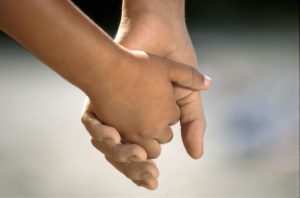Decades ago, when our family came to Iowa, I found the Hawkeye State uncomfortable.
Not only did our oldest daughter and I have twangy southern accents that had people asking us to repeat slowly drawled words and phrases — “High-Ah-Wah-Tha, Eye-Oh-Wah” was, in retrospect, one of the more accent-challenged place names for our first home — but it was strange to suddenly be surrounded mostly by people who outwardly looked a great deal like me.
Growing up, I don’t remember any calls for diversity. But that’s probably because my hometown was an imperfect mix of cultures and skin tones.
The situation was, of course, not to everyone’s liking. There were residents there, just as there are here, who chose to judge others on appearance. Fortunately, my family, led by my father’s example, was never counted among that group.
Still, there was nothing in my previous life experience to prepare me for life in Iowa. I missed seeing and hearing people different from myself at the store, in meetings or in church pews.
I was overeager in my personal outreach to community newcomers. To this day, our oldest daughter laughs as she describes the shock on the face of a young African American man, who I greeted with a hearty “Welcome to Marion!”
 Southern women, you see, are a lot of things, but few would accuse us of being shy.
Southern women, you see, are a lot of things, but few would accuse us of being shy.
But, before last week, after writing about the differences between Ferguson, Mo. and Iowa City, I’ve never been called out for exercising white privilege.
I understand that I inherently benefit from the outer wrapper of a white woman. But I also know horse thieves and moonshine runners are sprinkled in my lineage. I can’t ignore growing up in poverty, being the only woman in my family to attend a university, or the full-blooded Cherokee grandmother I’m told that I channel, but am not fortunate enough to resemble.
If I believe what’s been said, I’m in no position to discuss racism. I’m especially not qualified to note the differences between what happens here and there, or to say that one, no matter how criminal or violent, is somehow more egregious than the other.
For me to do so, I’m told, “invalidates the ways racism impacts black people.”
I’ve always believed the fabric of America is woven by the threads of all of our experiences — good, bad and other. When any one is removed, the fabric is weakened.
In a way, that’s how this light-skinned, mixed-race Southern woman came to view the changing landscape of Iowa as home. I learned to appreciate the experiences of others, to acknowledge that skin tone is only one (very public) facet of diversity.
The move to Iowa introduced me to cultures that were not predominant in my birth state. Through quiet observation, I better understood that people, even those who look alike, can face unique challenges and struggles.
Acknowledging that I will never hold or fully grasp the exact experiences of many who grace these paragraphs is a part of the territory. But the real professional and personal shame would be if I didn’t try.
One voice, one thread can be different, but invalidates only with your permission.
This column by Lynda Waddington originally published in The Gazette on March 14, 2015.
